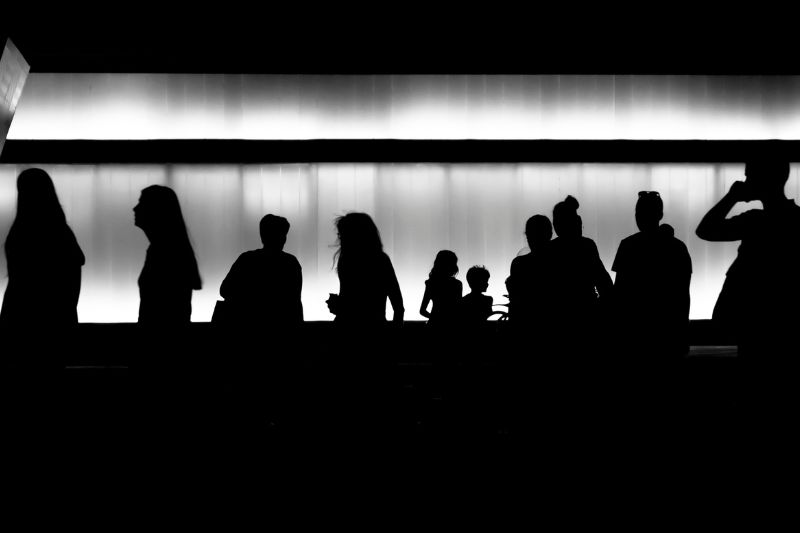The Australian Parliament has recently signified its intention to review the perennially thorny question of anti-discrimination exemptions. In response, a few positions have been staked out by the media, including that of Archbishop Comensoli of Melbourne. The Archbishop has intimated the resolve of the Australian Catholic Bishops’ Conference to safeguard its right to employ those whose views and values cohere with those of the Catholic Church, a longstanding position of the Church in Australia.

Existing exemptions within federal anti-discrimination laws allow religious groups to give consideration to sexual orientation, gender identity and marital or relationship status when hiring staff. These exemptions were put in place in recognition of the impacts that anti-discrimination law may have on maintaining and promoting the beliefs, doctrines and principles that religious organisations seek to preserve.
In late 2022, the Attorney-General asked the Australian Law Reform Commission (ALRC) to conduct an inquiry into religious educational institutions and anti-discrimination laws. Over 400 submissions to the ALRC were made, including from such bodies as the Australian Human Rights Commission.
At a state level, in 2023 the NSW Government commissioned the NSW Law Reform Commission (NSWLRC) to conduct a review of anti-discrimination law. The preliminary submission from the NSWLRC supported a comprehensive review of the Anti-Discrimination Act 1977 (NSW), stating that ‘the Act in its current form has not kept pace with changes in societal understandings of discrimination, nor the increasing body of evidence on its wide-ranging and harmful impacts’.
And in 2022, the Victorian Government made changes to the Equal Opportunity Act 2010 (Vic) to prohibit religious bodies and schools from discriminating, except in limited circumstances, based on sexual orientation, gender identity, or marital or parental status. They may continue to discriminate in relation to employment only where ‘conformity with the beliefs, doctrines or principles of the body or school’s religion is an inherent requirement of the job’ and where ‘the discrimination is reasonable and proportionate in the circumstances’.
Clearly, anti-discrimination law and the scope of exemptions are very much under scrutiny, with questions raised regarding the need for reform to ensure the protection of the rights and freedoms of all and to reflect contemporary community standards.
'In the near future, it is likely there will be continued challenges to anti-discrimination exemptions as the government and religious institutions work to reconcile the freedom to manifest religious belief with the protection of the rights and freedoms of all.'
The basis for anti-discrimination exemptions in the Catholic space revolves around the notion of upholding the values of the Catholic faith. The issue of Catholic values is a complex one, especially given the universalist stamp with which Pope Francis has chosen to mark his papacy, hallmarked by his trademark use of the term ‘widen the tent’: an exhortation to welcome and encourage the participation of individuals and groups traditionally marginalised within the Catholic community.
Pope Francis’ address of aspects of modern family life in Amoris Laetitia (The Joy of Love) demonstrates this inclusive approach. In it he emphasises the importance of ensuring the divorced and remarried are made to feel part of the church; he also responds to the issue of same-sex relationships by saying ‘every person, regardless of sexual orientation, ought to be respected in his or her dignity … while every sign of unjust discrimination is to be carefully avoided’.
The Pope’s expression of faith sits most powerfully at the intersection between theology and compassion. It may at times appear to conflict with the concerns of those ‘nuts and bolts’ essentialists marking out Catholic identity in ways that adhere more closely to canon law than to pastoral theology. Clearly there is need for continued open discussion in addressing the complexities of doctrinal, moral, spiritual and pastoral questions as anti-discrimination exemptions for religious organisations come under review.
It may be helpful to consider global patterns in relation to anti-discrimination exemptions. While these sometimes reflect cultural and political histories and realities different from our own, the trends impacted by human rights and anti-discrimination initiatives are also universalist. It also happens that, regardless of the variety of school-funding agreements struck in other polities, the direction tends to be for such exemptions to be lifted.
px.jpg)
In Britain, the European Union, Canada and New Zealand, such exemptions are so contained as to generally cover a minimalist agreement that Principals and Heads of Religion are required to be practising Catholics. In the United States, where its Constitution specifically debars religious schools from being state-aided, such schools may generally do what they please. Even then, Catholic schools and universities tend to have expressions of values, enrolment policies and employment practices that are markedly different from those of Evangelical Protestant schools.
In Australia, the Commonwealth, state and territory governments provide funding for non-government as well as government schools (Commonwealth funding of private schools, having withstood a High Court challenge, is now a firm feature of the Australian state-aid model). Moreover, with half of all secondary students now enrolled in non-government schools, it is unlikely that this dual-funding model will change in the foreseeable future. Herein lies a dilemma for the ‘pro-exemptions’ lobby: lifting anti-discrimination exemptions might offer religious schools greater opportunities in terms of more equitable funding.
Many religious schools are seeking counsel in addressing the increasingly sensitive matter of welcoming a diverse staff and student presence. Accusations of provoking schism may be countered by arguments that any discrimination in hiring or enrolment aims to safeguard the right of students to a learning environment that supports their religious and moral education. In the near future, it is likely there will be continued challenges to anti-discrimination exemptions as the government and religious institutions work to reconcile the freedom to manifest religious belief with the protection of the rights and freedoms of all.
Michael Furtado studied Catholic Social Teaching at Oxford. As Education Officer (Social Justice, Brisbane Catholic Education) his focus was on the role of human rights in Catholic education. Michael’s doctorate in school-funding is from The University of Queensland.
Main image: (Getty images)